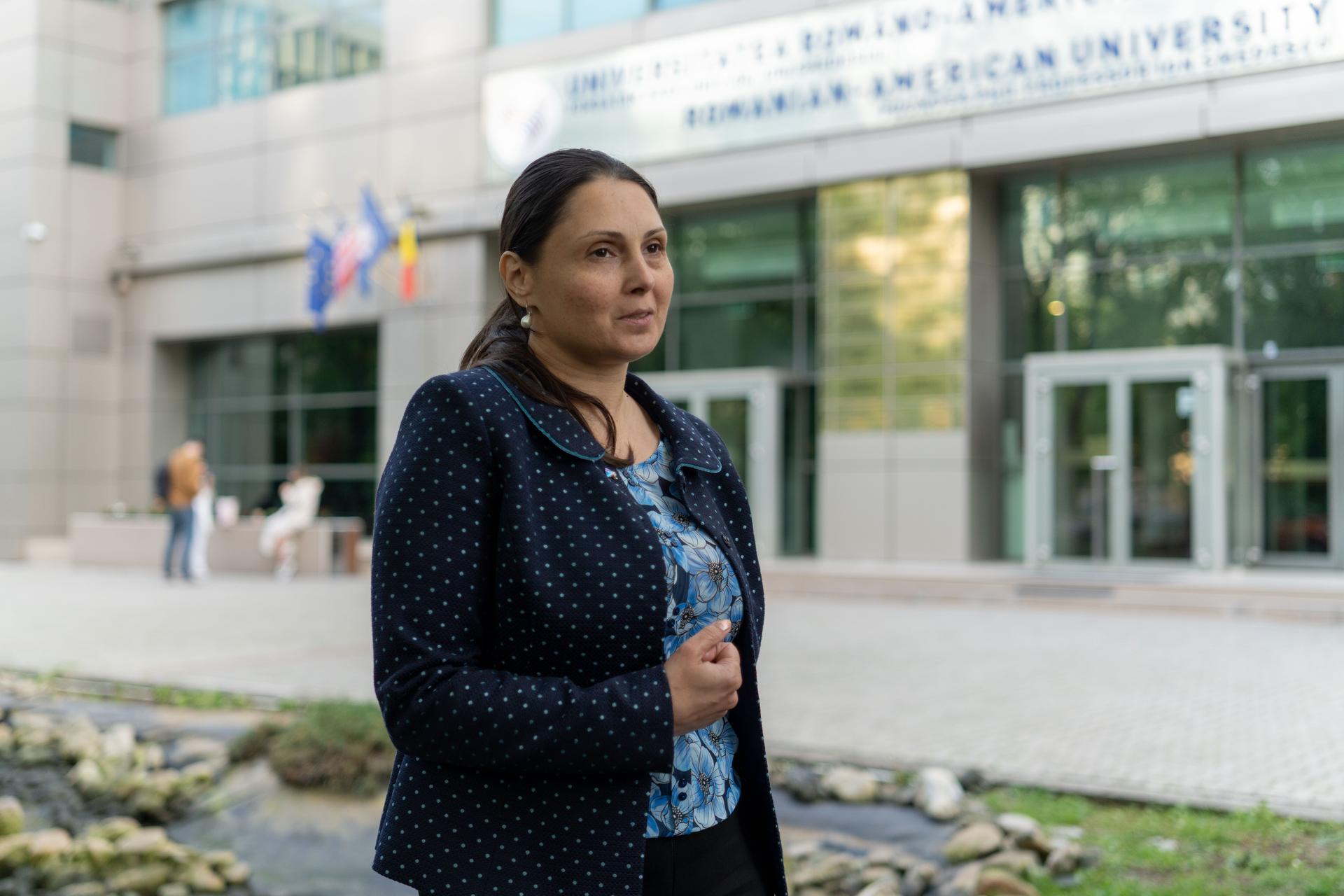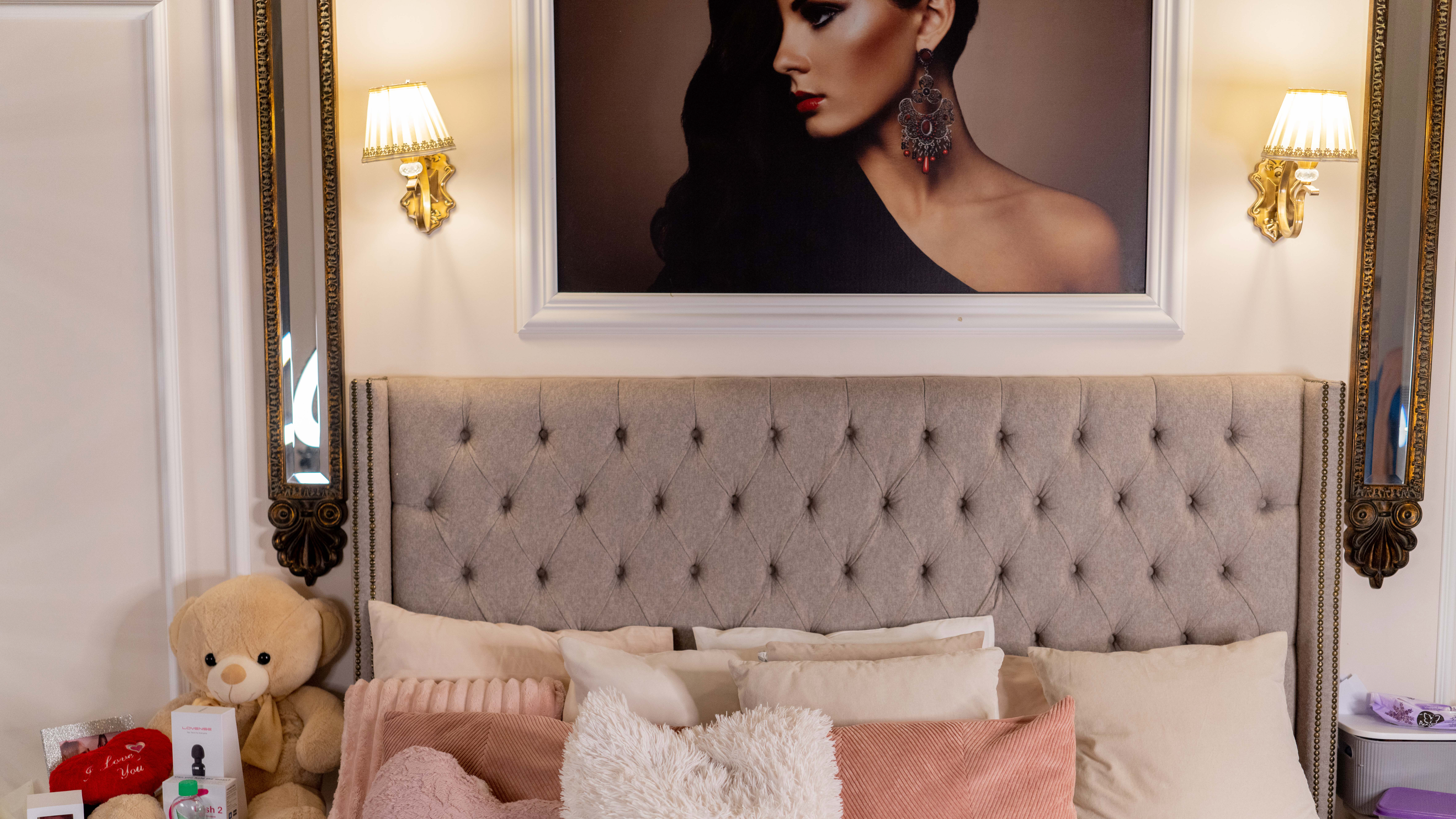Arrest of online influencer Andrew Tate puts Romania’s webcam industry in the spotlight
Best Studios is one of the largest adult webcam companies in Romania with 170 models employed.
The studios are located on the top floor of an old shopping mall in central Bucharest.

Maria Boroghina, the operational manager there, said that a top-earning webcam model can make up to $50,000 per month.
“How much you earn depends on how good you are at communicating with the clients, and how many hours you work,” said Boroghina, a former webcam model herself.
Romania has the biggest adult webcam industry in Europe, reportedly employing more than 400,000 women and 5,000 companies are registered in the business, according to recent figures from ANAF, the National Agency for Fiscal Administration in Romania.

Webcam studio owners there say the business is perfectly legal. But following the arrests in December of US-born Andrew Tate, an online influencer, and his brother, Tristan Tate, who ran a webcam company in Romania, the country’s industry is under new scrutiny.
The Tates, who face allegations of human trafficking, rape and forming an organized crime group, and two Romanian female suspects are now under house arrest pending a criminal investigation.
Boroghina, who said she wasn’t familiar with the Tates before their arrests, said the case shows that the adult industry needs better regulation.

In Romania, webcam work is legal as long as women are on camera alone and no violence or coercion is involved.
But it is not regulated under Romanian law or recognized in terms of taxation, so the women work as “online service providers” based on a copyright contract.
Boroghina said that Best Studios has various safeguards in place. For starters, they advise models to keep their clothes on for as long as possible.
“We encourage our girls to get into conversation with the customers,” Boroghina said, although “99% of the time, they are asked to get naked.” (Men also work as webcam models in Romania but Boroghina’s company only employs women.)
The majority of their clientele are based in the US.
“They pay anything from $1 to $10 per minute for a private conversation with our girls,” she said.
The company avoids clients from Romania in case they know any of the models — it’s one way, she said, to prevent women from being targets on social media or in person. Boroghina said the women usually make contact with her company looking for work after seeing their adverts for jobs online.
But not all webcam companies operate through transparent, official channels. And, Romania is a primary source country for sex trafficking in Europe, according to the State Department’s 2022 report on human trafficking. The country is also one of the poorest in the European Union where the average gross monthly salary is about $1,316.
Silvia Tăbușcă, a law lecturer at the Romanian American University in Bucharest who has worked with prosecutors on trafficking cases, said several webcam operators have been involved in abusive practices where the women are coerced or forced to meet with clients in person.

“The women are threatened with different videos of them performing online, that are taken by the companies in order to meet real clients and to prostitute themselves,” she said.
Tăbușcă has met with webcam models seeking legal advice about the abuse they have suffered but the women rarely press charges. She recounted the case of two young webcam models from Bacău in eastern Romania who were forced to meet with clients in Dubai.

“They were effectively tortured for a week and sexually exploited in every possible way,” Tăbușcă said.
The women declined to testify to the Romanian authorities because they had been warned that videos of their online performances would be released, she said.
Monica Boseff’s organization, Open Door Foundation in Bucharest, offers support and shelter to victims of sex trafficking.
She said the most common tactic continues to be the “loverboy method” — where men convince young, often vulnerable women to fall in love with them and then coerce them into webcam work.
Andrew Tate wrote in a now-deleted page on his website that more than half of the 75 women he said were working for his webcam company started out as his girlfriend.
Boseff said many of the women she has supported were lured into the work by the “loverboy method” and a large percentage started out as webcam models.
Boseff said efforts are improving in Romania to crack down on trafficking but little has been done to target webcam operators who may be engaged in illegal activities. And she said no attempt has been made to penalize the clients who pay for any illegal services.

It’s only ever the women who suffer, she said. Boseff rejected the claim by webcam bosses that women choose to work in the industry. If it’s such a desirable profession she said, then why aren’t they training their own daughters to work in the business?
“It’s because they know exactly what it does to the human body, mind and soul,” she said.
Raul Stef contributed reporting to this story.
